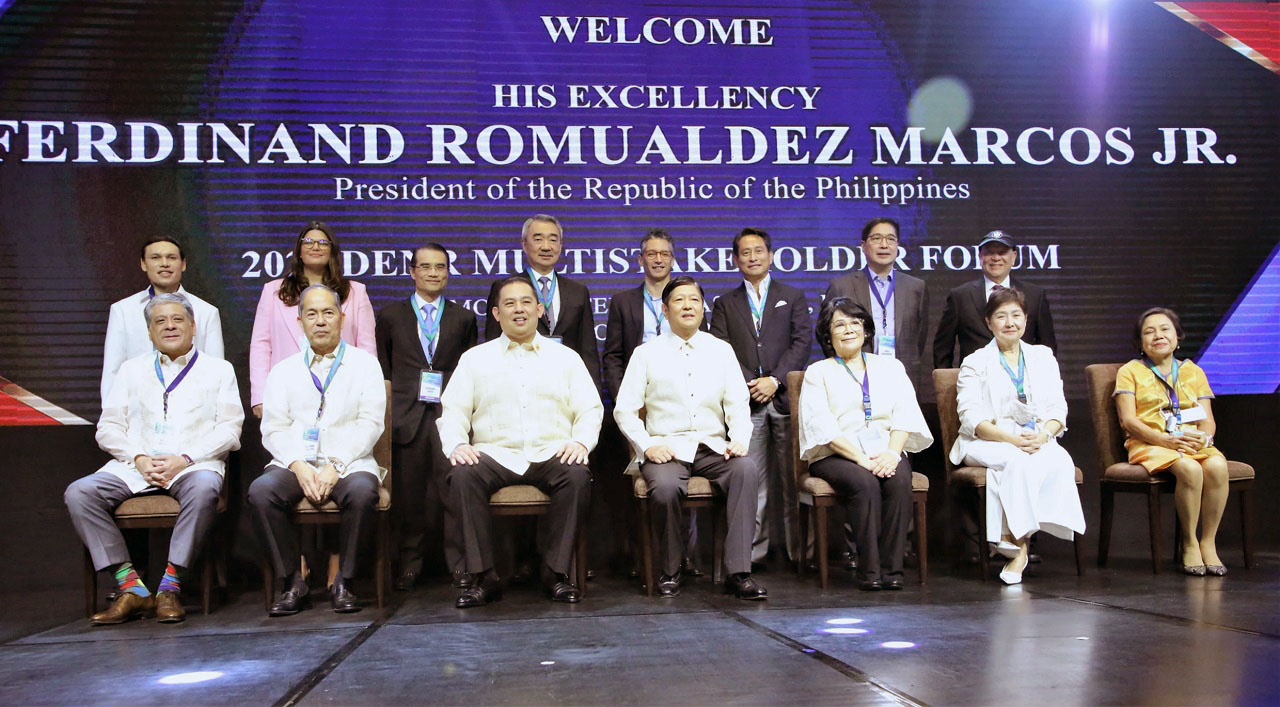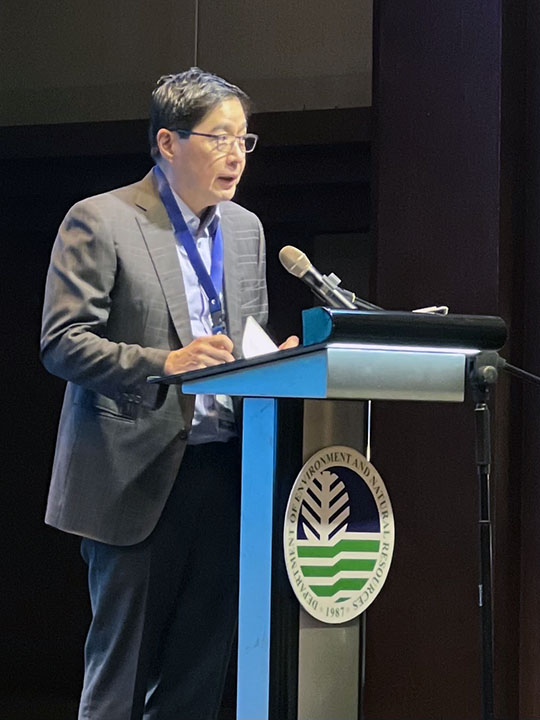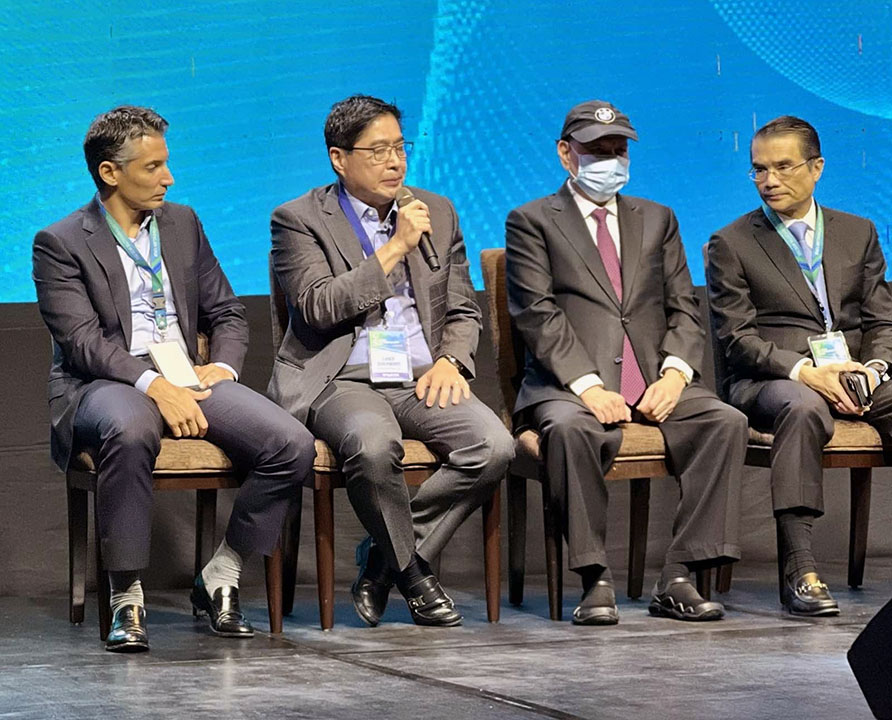JG Summit President and CEO Lance Gokongwei recently shared insights on helping the Philippines attain environmental and economic resiliency at the 2022 Department of Environment and Natural Resources Multi-stakeholder Forum.
Through the three-day event held from October 5 to 7, 2022, the DENR aimed to identify challenges faced by stakeholders and to solicit feedback and recommendations that would help shape its programs on climate and disaster resilience as well as sustainable development.
Joining government officials led by President Ferdinand Marcos Jr. and DENR Secretary Maria Antonia Yulo-Loyzaga and key business leaders on the forum’s opening day, Gokongwei strongly affirmed the Gokongwei Group’s commitment to “prepare for the future” and bring about a “more resilient Philippines.”

As one of the event’s featured speakers, Gokongwei touted how the group’s various companies have all stepped up in tackling issues relating to the environment and climate change, such as the responsible utilization of resources, moving towards Net Zero, and effective plastic waste management.
Among the specific programs cited by Gokongwei include Universal Robina Corporation’s “Juan Goal for Plastic,” a project geared toward Plastic Waste Recovery and Diversion that launched with a hundred Gokongwei Group executives joining together in an effort to help solve the growing plastic waste issue.
Another noteworthy program is URC’s Agro-Industrial Group’s conversion of organic farm waste into biogas to minimize its dependence on conventional energy sources. Robinsons Land is also helping in the creation of resilient and low-carbon spaces and through its growing use of solar power and other renewable energy sources at its malls, while Cebu Pacific is moving toward the use of Sustainable Aviation Fuel on more of its flights.

To complement its ongoing programs for the environment, the Gokongwei Group is contributing in other ways to bring about greater economic resiliency. Gokongwei cited how Cebu Pacific has been a reliable ally of the government during natural disasters through its airlifting of relief goods, medical equipment, and personnel; it transported much-needed COVID vaccines at the height of the pandemic as well. On the issue of food security, URC is using “research and modern technologies to improve the nutrition portfolio of our snacks, beverages, and breads,” in fighting “hunger and malnutrition that lead to stunted growth, to making sure our countrymen, especially our children—our hope—are well-fed and healthy,” said Gokongwei.
The Gokongwei Brothers Foundation, which is celebrating its 30th anniversary this year, received special emphasis in Gokongwei’s remarks for being the largest private sector provider of Science, Technology, Engineering, and Mathematics scholarships in the country. “We strongly believe in the power of education to accelerate social mobility, increase personal and country wealth, and strengthen our social cohesion—driven by a highly educated work force as the backbone of a strong, resilient economy,” said Gokongwei.
In order for the nation to reach its resiliency goals, Gokongwei asserted the importance of finding ways to lower the “Green Premium,” a phrase popularized by Bill Gates to describe the additional cost of choosing a clean technology, product, or process over another that emits more greenhouse gases.
On an individual level, those who are able to afford it can make a big difference and support better, cleaner alternatives by “being willing to pay that extra buck for the green premium,” said Gokongwei.

ICTSI's Christian Gonzalez, San Miguel Corporation's Ramon S. Ang, and First Philippine Holdings' Federico Lopez.
Companies and investors, meanwhile, can also commit to buy and use cleaner alternatives, invest in research and development, support clean-energy entrepreneurs and startups, and advocate for helpful government policies.
Taking that last statement to heart, Gokongwei encouraged the government to institute policies and incentives to effectively lower the green premium by making cleaner, resiliency-friendly alternatives more accessible and cost effective. “With the emerging opportunities presented by the global transition to lower carbon industries, the government should act like a traffic cop to untangle the bottlenecks, identify redundancies and overlaps, and then move plans towards concrete targets within the framework of a unified roadmap,” Gokongwei said.
Answering President Marcos’ call for a “united effort” to combat the biggest threat we face today, Gokongwei closed his remarks by reiterating his group’s three-pronged commitment to growing its business, providing better choices for the Filipino people, and helping the government in its quest for economic resiliency.


